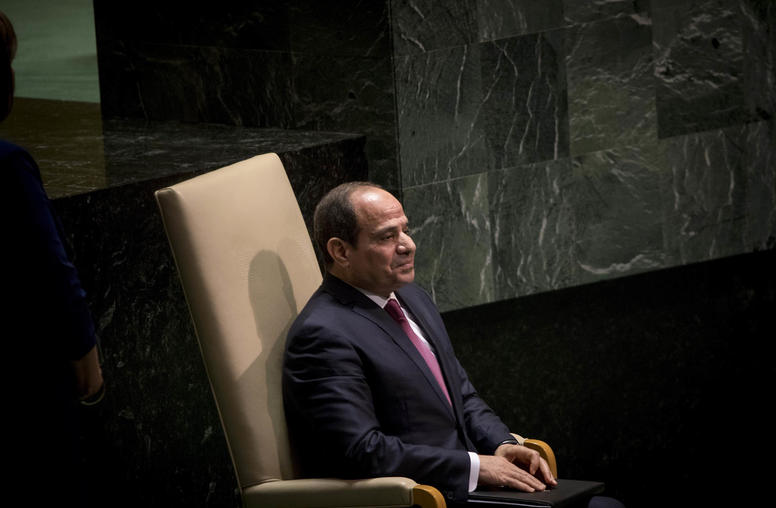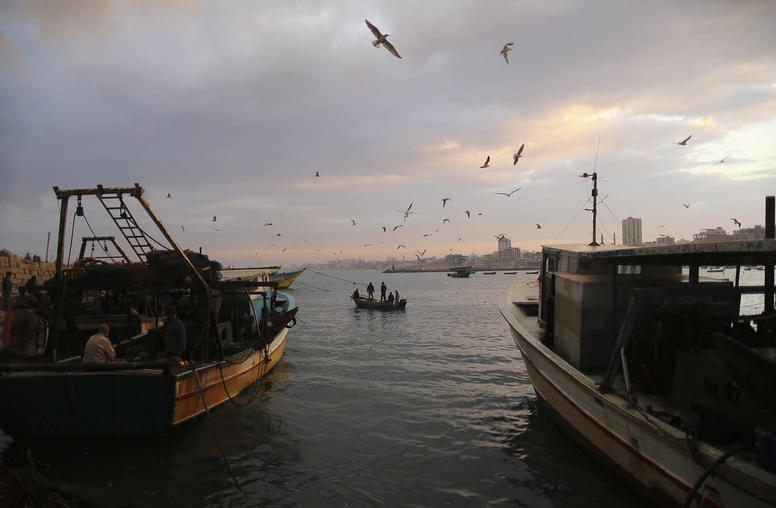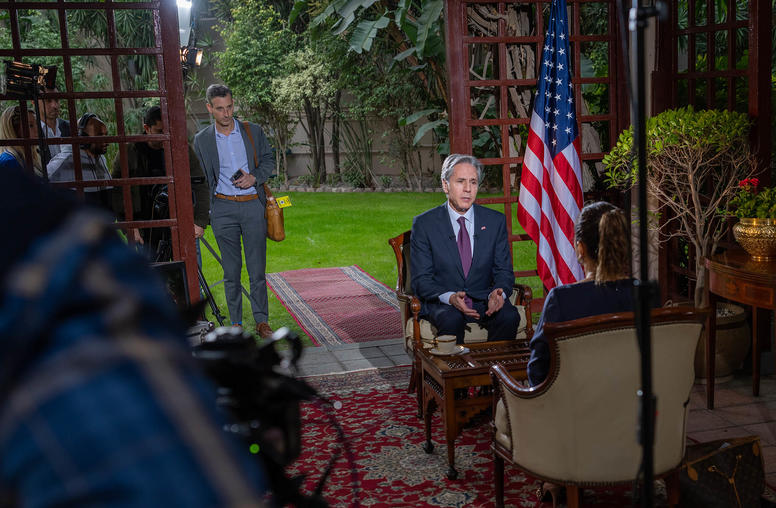U.S. Policy and the Arab World
USIP’s Dan Brumberg discusses the Arab Spring and the implications for U.S. policy and U.S. policymakers.
May 2, 2011
 USIP’s Dan Brumberg discusses the Arab Spring and the implications for U.S. policy and U.S. policymakers.
USIP’s Dan Brumberg discusses the Arab Spring and the implications for U.S. policy and U.S. policymakers.
- What are the implications of political transformations in the Arab world for U.S. policy?
- How would you characterize the emerging political landscape in the Arab World?
- What are the main risks and opportunities associated with the changes underway in the Middle East?
What are the implications of political transformations in the Arab world for U.S. policy?
The United States has thus far been in a reactive mode—responding to events and improvising to a spiral of rebellions that no one was in a position to predict. The challenge is to move beyond this period of reaction and adjustment to forge policy responses that are strategically coherent yet responsive to the diverse social, economic, political, and ideological factors animating political change in the region. The desire for coherence is understandable. Democratic actors in the region—along with their supporters in the United States—hope that the events in the Arab world will provide a compelling rational for overcoming the long-standing tensions that have animated, and at times hobbled, U.S.- Mideast policy. Their message to Washington is that in the long term, U.S. security interests are best served by the creation of governments that enjoy popular support expressed through the institutions and rules of democratic governance. I agree with this basic statement, which is strongly echoed in USIP’s report, “In Pursuit of Security and Democracy in the Greater Middle East." The statement provides, in a general way, a point of departure for a more proactive U.S. policy. Still, there is no simple recipe for going from the chimera of autocratic domestic “peace” to a reality of democratic stability. If we are to have a U.S. policy that is not merely driven by events, it must be organized around a sober , case-by-case analysis of both the constraints and opportunities for peaceful political change in the diverse national arenas of Tunisia, Egypt, Libya, Yemen and Bahrain. Flexibility, responsiveness, and appropriateness: these are not rationales for avoiding the challenges of democratization; on the contrary, they are the bases for effective policies.
How would you characterize the emerging political landscape in the Arab World?
The emerging political landscape in the Arab world is at the same time more united and more fragmented than it has ever been. It is united by the awakening of a new generation of political activists (and their growing constituency of followers) who are fed up with regimes that were out of touch with the economic, social, political, and even moral concerns of their populaces. If the Arab world shares one common structural characteristic it is this: the end of decades of political resignation and apathy, particularly within the urban middle classes.
But if there is a shared aspiration among the new generation to move beyond political apathy—and to participate in defining a new social and political contract between governments and societies—the opportunities and constraints that could invite or resist such a change differ from country to country. In some cases, there are significant ideological, sectarian or ethno-religious differences that dramatically raise the risks of democratization for regimes under siege. The most obvious examples are those of Bahrain and Syria, where minority based regimes (Sunni in the first, Alawite in the second) portray democratization as a path to political suicide. In Yemen, tribal, sectarian, and regional issues are also at play. These factors not only raise the stakes for ruling regimes, but also work against the formation of a united opposition front that is capable of opposing a regime and, more importantly, working together once that regime falls or its leader resigns. Libya is another case where the possibility for this kind of fragmentation—or conflict—also exists. Happily, the impediments to democratic peacemaking in Tunisia and Egypt are less imposing. A greater sense of national cohesion and solidarity prevails in both countries. But Islamist-secular tensions are growing in Egypt and Tunisia—a trend that if continued could create a rocky path for transition. The economy–and the associated challenge of reviving economic reforms that do not have popular support—is also a huge challenge in both countries. Unless the escalating economic crises facing Tunisia and Egypt are dealt with quickly, it will be difficult reach a consensus on how to pursue economic reform programs that assure growth, social equity, and political accountability. In short, the push and pull of local politics throughout the Arab world is the reality that analysts, policy makers, and activists must now confront—a reality that calls for the kind of policy flexibility I have discussed above.
What are the main risks and opportunities associated with the changes underway in the Middle East?
The main risk is one of national fragmentation or even state collapse. Yemen is the most prominent example. But such a dynamic cannot be excluded in the cases of Libya or even Syria. Behind the veneer of “strong states” is the sobering reality that these states are also very brittle. The prospect for a political vacuum emerges once the combined mechanisms of fear and patronage, that up until recently held each state together, fall apart. Such a prospect can open a space for extremists to fill. On the other hand, if ruling regimes manage to prevail over the forces pushing for change, they will do so at the cost of losing all legitimacy. Such a scenario poses a dilemma for the United States when we are aligned with regimes that, for geo-strategic reasons, play an important role in U.S. security policy. The most obvious example here is Bahrain, home to the U.S. Fifth Fleet. There is no gainsaying the vital role that Bahrain plays in sustaining U.S. strategic leverage in the Gulf. But if the Bahrain-U.S. alliance is based on backing a regime that is disliked by the majority Shiite population, then a question needs to be asked: would U.S. long term security interests be best served by pressing Bahrain’s leaders to listen to and negotiate with their opponents rather than trying to crush them?
The opportunity is to create a new political and social contract between governments and citizens, so that the policies of those who govern have a measure of real legitimacy and accountability. Of course, with such opportunity comes the reality that democratically elected governments may choose to be less friendly to certain American policies. For example, a poll recently conducted by the Pew Research Center suggests there is popular antipathy to the Egyptian-Israeli peace accord. Nevertheless, my sense is that aligning U.S. values with U.S. interests will be best served in the long haul by advancing workable democratic reforms that bring governments and populaces into dialogue .The challenge is to navigate through a sea of short and medium term challenges or obstacles that will almost make this long term goal seem like a mirage. This will be easier in some cases and far more difficult in others.
Explore Further
- Eye on the Middle East and North Africa - Experts from the U.S. Institute of Peace (USIP) are closely following developments throughout the Middle East and North Africa. In a series of reports and interviews, they cover a wide range of issues.



